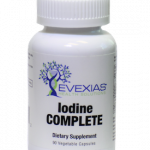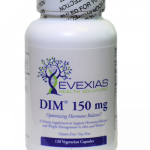
- Been dragging?
- Can’t stay focused?
- Achy?
- Constantly cold?
- Maybe even depressed?
- And you can’t figure out why?
It may be time to talk to your doctor about your thyroid. When you think of what keeps your body running correctly, you probably think of organs, like the heart, lungs, brain, and even kidneys.
But there are also a number of glands in the body that are just as important to your health. One of them is the thyroid.
Our bodies send us signals all day, every day. For example, when we don’t drink enough water, we may get a headache, or if you’re hungry, your stomach may rumble. The same rings true whenever our bodies may be experiencing changes or hormonal imbalances.
So, what’s the big deal? Many people may assume imbalanced hormones is just a part of life, and they’ll naturally fall back in place.
However, hormones play a vital role in our body’s function; they control metabolism, growth, and reproduction, among other things.
Don’t Ignore Hormonal Imbalance
Balanced hormones keep our health on track, even if you feel completely normal, your body may be trying to tell you something. Here are six signs of hormonal imbalance that you shouldn’t ignore.
1. Sudden Change in Sleep Pattern
If you’ve noticed a change in your sleep pattern, especially if you’re getting less sleep than before, you may be experiencing an imbalance of hormones.
2. Hot Flashes
Although typically associated with menopause, this telltale sign of out-of-whack hormones can occur in anyone, male or female, young or old.
Hot flashes tend to signify an imbalance in progesterone. If left unattended, improper progesterone levels can cause complications like infertility or weight gain.
3. Recurring Infections
If your body can’t shake an infection, or for females, you have multiple yeast infections or UTIs, you should have your hormone levels checked.
4. Changes in Hair and Skin
Hormones are linked to the vitality of your hair and skin. Do you feel your hair is becoming brittle or thinning or that your skin appears to be lackluster?
This could be your hormones. Dry hair, skin, and brittle nails are also common signs of changing hormones.
5. Change in Appetite
Are you experiencing sudden cravings or strange patterns of hunger that aren’t typical? This hunger could be a result of a spike in levels of the hormone ghrelin, which controls hunger. This tip is just one reason many people experiencing hormonal issues tend to gain weight.
6. Mood Swings
Both men and women report changes in mood, particularly feeling irritable or the inability to focus when experiencing hormonal changes. Thanks to surges in estrogen, you may feel extreme mood swings or depression that you haven’t dealt with before.
Our bodies are intuitive, and they are always speaking to us, whether we choose to listen and act or not is completely up to us.
Don’t Ignore These Signs of Hormonal Imbalances
However, ignoring the six signs above (as well as other symptoms) could lead to hormone imbalance related diseases like diabetes, osteoporosis, and much more.
If you want to review a full list of symptoms, you can see one for women here and another for men here.
Men and women alike struggle with hormonal imbalance, and these imbalances can have serious impacts on our mental, physical, and emotional state. Our hormones are powerful; they’re chemical messengers can control our appetite, weight, and mood, among other things.
If you think you may be struggling with hormonal imbalance, check out our symptom checklist for men and women. Once we identify your imbalance, we can create a customized treatment plan for you, and part of the treatment plan may involve natural supplements.
Your Thyroid
This gland is shaped like a butterfly. It sits low on the front of your neck, below your Adam’s apple, and along the front of your windpipe. The thyroid is made up of two lobes connected by a bridge called the isthmus.
Nerves that influence the quality of your voice actually pass through the thyroid. It is also rich with blood vessels making it brownish-red in color. If you were to try to feel around for your thyroid, you wouldn’t feel it unless it was inflamed or enlarged.
The purpose of the thyroid is to secrete hormones. When grouped together, these hormones are quite simply called “thyroid hormones.” Thyroid hormones are essential for:
- Metabolism
- Heart and digestive function
- Growth and development
- Muscle control
- Mood and bone maintenance
- Regulating body temperature
As babies and children grow, thyroid hormones are crucial components of brain development.
The release of thyroid hormones is controlled by the hypothalamus (in the brain) and the pituitary gland. These glands form part of a feedback loop called the hypothalamic-pituitary-thyroid axis.
Breaking down Thyroid Hormones
The primary thyroid hormone is thyroxine(T4), which is a relatively inactive prohormone. The other hormone that makes up thyroid hormones is called triiodothyronine. It is released in smaller amounts than thyroxine.
The thyroid is only responsible for making twenty percent of the body’s triiodothyronine. The other 80% is made up of thyroxine, which is converted by organs such as the liver or kidneys.
The thyroid gland also produces C-cells (calcitonin), which appear to play a role in regulating calcium levels, but their exact function remains unclear.
Thyroid Disorders
There are a variety of thyroid disorders, including:
- Thyroid cancer
- Thyroid nodules
- Goiters
- Hyperthyroidism
- Hypothyroidism
For this article, we will focus on hyperthyroidism as it is the most common thyroid disorder.
Hypothyroidism occurs when the thyroid does not create enough hormones. Remember the feedback loop we mentioned earlier?
If there is any problem in any part of the feedback loop- with the hypothalamus, pituitary gland, or the thyroid gland- then hormone production can get thrown off.
Symptoms of Hypothyroidism
If you are suffering from hypothyroidism you may experience:
- Fatigue
- Poor concentration
- Dry skin
- Constipation
- Feeling cold
- Fluid retention
- Muscle aches
- Depression
- Excessive menstrual bleeding
- Hair loss
- Weight gain
Possible Causes of Hypothyroidism
Hypothyroidism is most commonly caused by damage to the thyroid gland from autoimmune thyroid disease. This damage occurs when the body’s immune system attacks the thyroid for many years.
In fact, this condition can progress so slowly, over the years, and even decades, that the onset of symptoms may go unrecognized and undiagnosed.
This chronic condition was first recognized about a century ago when it was named Hashimoto’s thyroiditis. It is the most common autoimmune disease in which the body’s immune system attacks its own tissues. Hypothyroidism often runs in families and is more common in women than men.
Autoimmune Thyroid Disease
Women who have autoimmune thyroid disease may develop temporary hypothyroidism lasting for a few months after pregnancy.
Other common causes of hypothyroidism include:
- The surgical removal of the thyroid (usually for benign or malignant thyroid nodules)
- Radioactive iodine therapy (for overactive thyroid, hyperthyroidism)
- Transient hypothyroidism due to viral infections (subacute thyroiditis)
- Congenital hypothyroidism
- Iodine excess
- Pituitary gland disease
Testing for Hypothyroidism
Hypothyroidism symptoms are non-specific. If you look at the symptoms that we have listed, you will notice that most of them are common symptoms that may or may not have anything to do with thyroid disease.
That’s why the diagnosis depends on blood tests. The good new is that tests for hypothyroidism are simple and highly accurate. Blood tests can detect the mildest forms of hypothyroidism before severe symptoms occur.
The most effective hypothyroidism test is TSH (stimulating thyroid hormone).
TSH:
- Is a pituitary hormone that stimulates and regulates the thyroid gland
- Rises when thyroid levels fall
- Will rise even before thyroid hormone levels decline below the normal range, which makes the test highly sensitive
Sometimes providers will also test for how much thyroid hormone(T4, free T4) is in the blood.
Determining Who Should Be Tested
Often providers will include a thyroid test as part of a wellness exam, particularly in women, to make sure that the thyroid is functioning properly. Providers will also test for hypothyroidism if you:
- Have family members with hypothyroidism or other forms of autoimmune thyroid disease.
- Have other autoimmune diseases, such as rheumatoid arthritis, juvenile-onset diabetes, celiac disease, or lupus.
- Are suffering from multiple symptoms of:
- Fatigue
- Poor concentration
- Dry skin
- Constipation
- Feeling cold
- Fluid retention
- Muscle aches
- Depression
- Excessive menstrual bleeding
- Hair loss
- Weight gain
Hypothyroidism Treatment
Luckily, treatment for hypothyroidism is straight forward. It consists of thyroid hormone replacement therapy, which is simply replacing the missing hormone daily.
Early on, the hormone supplement was provided in the form of tablets made from animal thyroid gland. For the last 50 years, this has been replaced by pure thyroid hormone (levothyroxine).
When undergoing thyroid hormone replacement therapy, you will be regularly tested using the same TSH test used for diagnosis to check your levels until a normal TSH level is reached.
Once the perfect dose is determined, all symptoms of hypothyroidism will be reversed, and normal health restored. Hypothyroidism rarely fixes itself, so you should expect to take this treatment for the rest of your life.
Bio-Identical Hormones as the Basis for Thyroid Hormone Replacement Therapy
If your thyroid therapy has been ineffective or you are searching for a thyroid therapy for the first time, we recommend trying bio-identical hormone replacement therapy (BHRT).
Currently, BHRT is the safest and most effective treatment for correcting hormone imbalances. You may be familiar with the bad reputation had by synthetic hormone replacement (HRTs) BHRT’s are different.
BHRT is a natural alternative to synthetic hormone replacement therapies. Bio-identical hormones are derived from natural, plant-based substances.
Unlike synthetic hormones, the structure of the bio-identical hormone most closely matches each patient’s individual needs. And since they are derived from nature, plant-based hormones metabolize in the body, just the way nature intended.
The EvexiPEL Approach
At EvexiPEL, we use a safe, all-natural, and effective hormone treatment known as BHRT Pellet Therapy; you can read more about it here.
To offer patients a complete solution and long-lasting treatment, we often suggest certain supplements to complement the natural pellet therapy. Today we’ll go over 5 of these companion supplements and what you can get from them.
1. DIM
Diindolylmethane (DIM) is a natural plant nutrient that comes from cruciferous plants (like broccoli or cabbage). Both women and men may benefit from DIM as it supports estrogen metabolization and frees testosterone from binding agents in the blood.
DIM may be prescribed to enhance hormone optimization and to promote breast, uterine, cervical, and prostate health. DIM may also reignite sex drive, decrease body fat, and alleviate premenstrual and menopausal symptoms.
2. B-Complex
Methyl B-Complex is made up of eight B vitamins, along with essential support nutrients. The formulation helps support the brain, nervous system, and cardiovascular system and may be prescribed to improve memory, mental health, and energy levels. This supplement is essential in hormone optimization treatment and toxins from the body.
3. Iodine
Essential for managing a vast number of diseases and conditions and also plays a crucial role in the production of thyroid hormone and receptor activity of other hormones. This powerful nutrient supports hormone optimization while also aiding patients with blood sugar issues and cancer of the:
- Breasts
- Ovaries
- Prostate
- Uterus
4. Mega Probiotic
ND is a dairy-free probiotic formulation composed of several all-natural strains of beneficial microorganisms. Along with probiotics, the formulation includes soluble fiber and a pre-biotic.
Your body uses mega Probiotic-ND to maintain gut health and helps ensure hormones like cortisol (the stress hormone), and neurotransmitters like serotonin (the happiness chemical) are working in harmony to help you experience more energy.
5. Omega 3
Omega 3 HP-D is a high-potency supplement that combines high yield with omega-three essential fatty acids EPA and DHA along with 1,000 IU of Vitamin D3. Hormones need Omega 3 fatty acids to build themselves, and they can also help transport hormones throughout the body by improving blood flow. Also, they’re anti-inflammatory and can help deal with specific symptoms.
We Can Help
Can you identify with any of the symptoms above or on the lists? We recommend scheduling your completely confidential consultation today!
Speak with one of our experts to determine if you may be suffering from hormone imbalance, and we can walk you through the best steps to make necessary and healthy changes or start treatment options.

